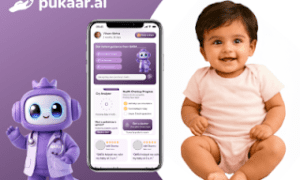In the industry, exceptional customer support serves as the bedrock for customer loyalty, responsible consumption, and long-lasting brand reputation. This sector has its unique challenges, from stringent regulations to age restrictions, which make effective customer support even more critical. Our focus here is to provide beverage alcohol customer support management insights through a set of five pivotal metrics.
Why Customer Support Matters
In the industry, customer support extends beyond basic troubleshooting. Let’s explore how superior customer service can cultivate brand loyalty and fulfill the industry’s unique social responsibilities, setting the stage for long-term success.
Fostering Brand Loyalty
Customer support isn’t just about resolving issues; it’s a key ingredient in brand building. Especially in the alcohol sector, where consumer preferences can be highly diversified, excellent customer support can differentiate a brand. Brand customer retention platforms can play a pivotal role here, helping brands track customer interactions and deliver personalized service. Consistent and high-quality support can turn occasional buyers into repeat customers, fortifying the brand’s loyalty.
Promoting Responsible Consumption
As purveyors of alcoholic beverages, companies bear a unique responsibility. They must ensure they’re doing their part to encourage responsible drinking. Customer support representatives need to be well-trained in recognizing signs of irresponsible consumption and should provide resources for responsible drinking. This not only meets ethical and legal requirements but also elevates the brand’s reputation for social responsibility.
Five Metrics for Success
Metrics provide concrete data that can assess and improve your customer support performance. This segment outlines the five key metrics crucial for appraising customer support in the alcohol sector, from response time to Net Promoter Score.
Measuring Response Time
Speedy replies to customer queries can make a world of difference. Delays can be particularly harmful for e-commerce platforms, where customers expect swift and seamless experiences. A lower response time not only boosts customer satisfaction but also positively impacts the brand’s reputation in a competitive market.
The Power of CSAT
Customer Satisfaction Scores (CSAT) give direct insight into how consumers view your service. In an industry where options abound, a poor CSAT can quickly steer customers towards competitors. E-commerce solutions for alcohol brands should, therefore, include efficient ways of collecting and analyzing this metric. Acting on this data to improve the customer experience can provide a significant edge.
Ticket Resolution Rate
A closed ticket doesn’t always equate to a resolved issue from the customer’s perspective. The ticket resolution rate helps brands understand how effectively they’re addressing problems. This metric is closely tied to CSAT, as quickly and efficiently resolving issues naturally leads to higher satisfaction. For the alcohol sector, where customer queries may involve complex regulations and age-verification processes, a high ticket resolution rate becomes crucial.
Feedback Loop Efficiency
A well-crafted feedback loop can offer insights that drive real-time improvements in customer support. Particularly for direct-to-consumer alcohol sales technology, this metric can be a goldmine for understanding customer needs and preferences. Efficient feedback loops help companies adapt quickly to market trends and customer expectations, enabling them to stand out in a crowded market.
The Role of NPS
The Net Promoter Score (NPS) serves as a significant metric for assessing long-term customer satisfaction and loyalty. While it is intrinsically linked to other metrics like CSAT, NPS focuses more on the customer’s likelihood to recommend the brand. In the alcohol industry, word-of-mouth referrals driven by high NPS can be incredibly beneficial, as recommendations often hold more weight than any advertisement.
Metrics: An Interconnected Web
Metrics don’t operate in a vacuum; their interconnected nature often has ripple effects on various aspects of the business. This part delves into how these five core metrics interrelate and influence consumer behaviors, word-of-mouth referrals, and overall brand perception.
Impact on Consumer Choices
Metrics are crucial in understanding consumer behavior. While each metric offers its unique insights, it’s when we see them together that the full story emerges. For example, if a brand consistently showcases prompt response times and effective ticket resolutions, the outcome often is a high Customer Satisfaction (CSAT) score.
This high CSAT score means that customers are more likely to return to the brand, establishing a sense of loyalty. Brands that are aware of the interconnection of these metrics have a significant advantage. They can adapt their customer support strategies accordingly, ensuring that they continue to enhance their position in the marketplace.
Role in Word-of-Mouth Referrals
Customer Satisfaction (CSAT) and Net Promoter Score (NPS) play pivotal roles in determining how customers talk about a brand to others. When these scores are high, it often leads to a ripple effect, with customers willingly recommending the brand to their friends and family. This phenomenon is especially evident in the alcohol industry.
Here, a personal recommendation can heavily sway someone’s purchasing decision. Brands in this industry that recognize the importance of these metrics and prioritize delivering superior customer service can experience genuine, organic growth, primarily driven by their own customers singing their praises.
Shaping Brand Perception
The importance of maintaining a positive brand image in today’s digital age cannot be overstated. A single negative customer experience can cause lasting damage to a brand’s reputation, given the reach and impact of online reviews and social media chatter. But, this is where metrics come to the rescue.
Consistently monitoring them, brands can spot potential issues early on. This proactive approach allows them to address any concerns before they grow into larger, more damaging problems. Over time, by giving due attention to these metrics, brands in the alcoholic beverage market can ensure they not only hold their ground but also rise above their competitors.
Armed with these metrics, alcohol brands have the tools to evaluate and refine their customer support strategies continually. By focusing on these key indicators, companies can exceed customer expectations, ensuring brand loyalty and responsible consumption.
Therefore, customer support isn’t just a function of business; it’s an essential part of building a resilient and enduring brand in the alcohol industry.



































